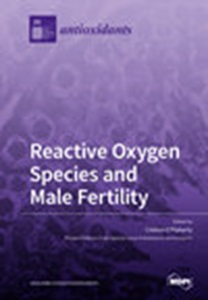通过槲皮素干预减轻多柔比星诱发的心脏毒性:大鼠实验研究
IF 6
2区 医学
Q1 BIOCHEMISTRY & MOLECULAR BIOLOGY
引用次数: 0
摘要
多柔比星(DOX)是一种有效的抗癌药物,但其使用受到剂量依赖性心脏毒性的限制。槲皮素是一种天然抗氧化剂,其有益特性经常被研究。此外,还有多种膳食补充剂可供人类使用。这项体内研究旨在探索槲皮素对慢性 DOX 治疗的潜在心脏保护作用。研究人员将 32 只 Wistar 大鼠随机分为四组:对照组、DOX 组、DOX/Q-50 组和 DOX/Q-100 组,分别用生理盐水、2.5 毫克/千克体重 DOX、2.5 毫克/千克体重 DOX + 50 毫克槲皮素和 2.5 毫克/千克体重 DOX + 100 毫克槲皮素治疗两周。使用心脏超声(US)和心脏损伤标记物对大鼠进行监测。对心脏的氧化损伤和超微结构变化进行了研究。慢性 DOX 治疗导致心脏功能下降,NT pro-BNP、肌钙蛋白 I 和 CK-MB 值升高。槲皮素治疗略微改善了某些美国参数,并使血清NT pro-BNP水平恢复正常。此外,DOX诱导的SOD1耗竭会导致Nrf2激活和DNA损伤,表现为γH2AX和8HOdG的增加。槲皮素治疗缓解了这些变化。口服槲皮素可减轻与 DOX 诱导的心脏毒性相关的血清指标。此外,槲皮素还对心脏US参数产生了有利影响。这表明槲皮素可能具有潜在的心脏保护特性。本文章由计算机程序翻译,如有差异,请以英文原文为准。
Mitigating Doxorubicin-Induced Cardiotoxicity through Quercetin Intervention: An Experimental Study in Rats
Doxorubicin (DOX) is an effective anticancer drug, but its use is limited by dose-dependent heart toxicity. Quercetin is a natural antioxidant frequently studied for its beneficial properties. Moreover, a wide range of dietary supplements are available for human use. This in vivo study aimed to explore the potential cardioprotective effects of quercetin in chronic DOX treatment. A total of 32 Wistar rats were randomly divided into four groups: control, DOX, DOX/Q-50, and DOX/Q-100, treated with saline, 2.5 mg/kg body-weight DOX, 2.5 mg/kg body-weight DOX + 50 mg quercetin, and 2.5 mg/kg body-weight DOX + 100 mg quercetin, respectively, for two weeks. Rats were monitored using cardiac ultrasound (US) and markers for cardiac injury. Oxidative damage and ultrastructural changes in the heart were investigated. Chronic DOX treatment led to a decline in cardiac function and elevated values of NT pro-BNP, troponin I, and CK-MB. Quercetin treatment slightly improved certain US parameters, and normalized serum NT pro-BNP levels. Furthermore, DOX-induced SOD1 depletion with consequent Nrf2 activation and DNA damage as shown by an increase in γH2AX and 8HOdG. Quercetin treatment alleviated these alterations. Oral administration of quercetin alleviated serum markers associated with DOX-induced cardiotoxicity. Furthermore, it exhibited a favorable impact on the cardiac US parameters. This suggests that quercetin may have potential cardioprotective properties.
求助全文
通过发布文献求助,成功后即可免费获取论文全文。
去求助
来源期刊

Antioxidants
Biochemistry, Genetics and Molecular Biology-Physiology
CiteScore
10.60
自引率
11.40%
发文量
2123
审稿时长
16.3 days
期刊介绍:
Antioxidants (ISSN 2076-3921), provides an advanced forum for studies related to the science and technology of antioxidants. It publishes research papers, reviews and communications. Our aim is to encourage scientists to publish their experimental and theoretical results in as much detail as possible. There is no restriction on the length of the papers. The full experimental details must be provided so that the results can be reproduced. Electronic files and software regarding the full details of the calculation or experimental procedure, if unable to be published in a normal way, can be deposited as supplementary electronic material.
 求助内容:
求助内容: 应助结果提醒方式:
应助结果提醒方式:


